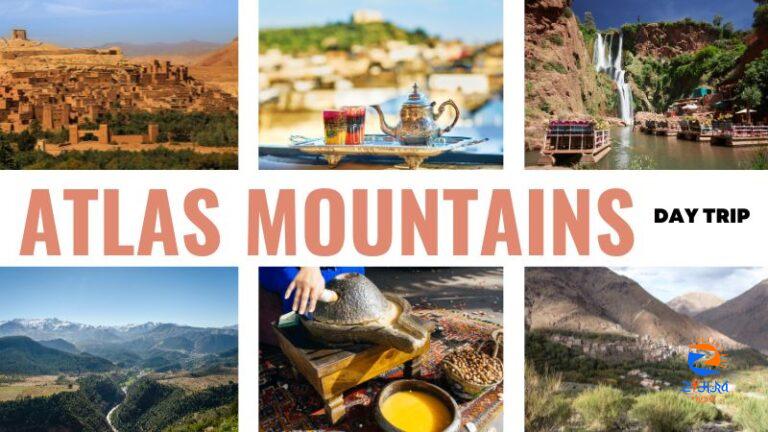
[ad_1]
Exploring the bustling cities of Marrakech and Agadir are must-dos when you visit Morocco, but no trip is complete without heading to the Atlas Mountains.
North Africa’s highest mountain range spans multiple countries in the region, one of them being Morocco. Enthusiastic hikers and outdoorsy travelers can easily take an Atlas Mountains day trip there from the likes of Marrakech for a relatively low price.
One minute, you could be exploring remote Berber villages overlooking the Imlil Valley; the next, you’d be riding a camel through the Moulay Brahim Gorges. That’s why I love the Atlas Mountains: they boast plenty of things to do!
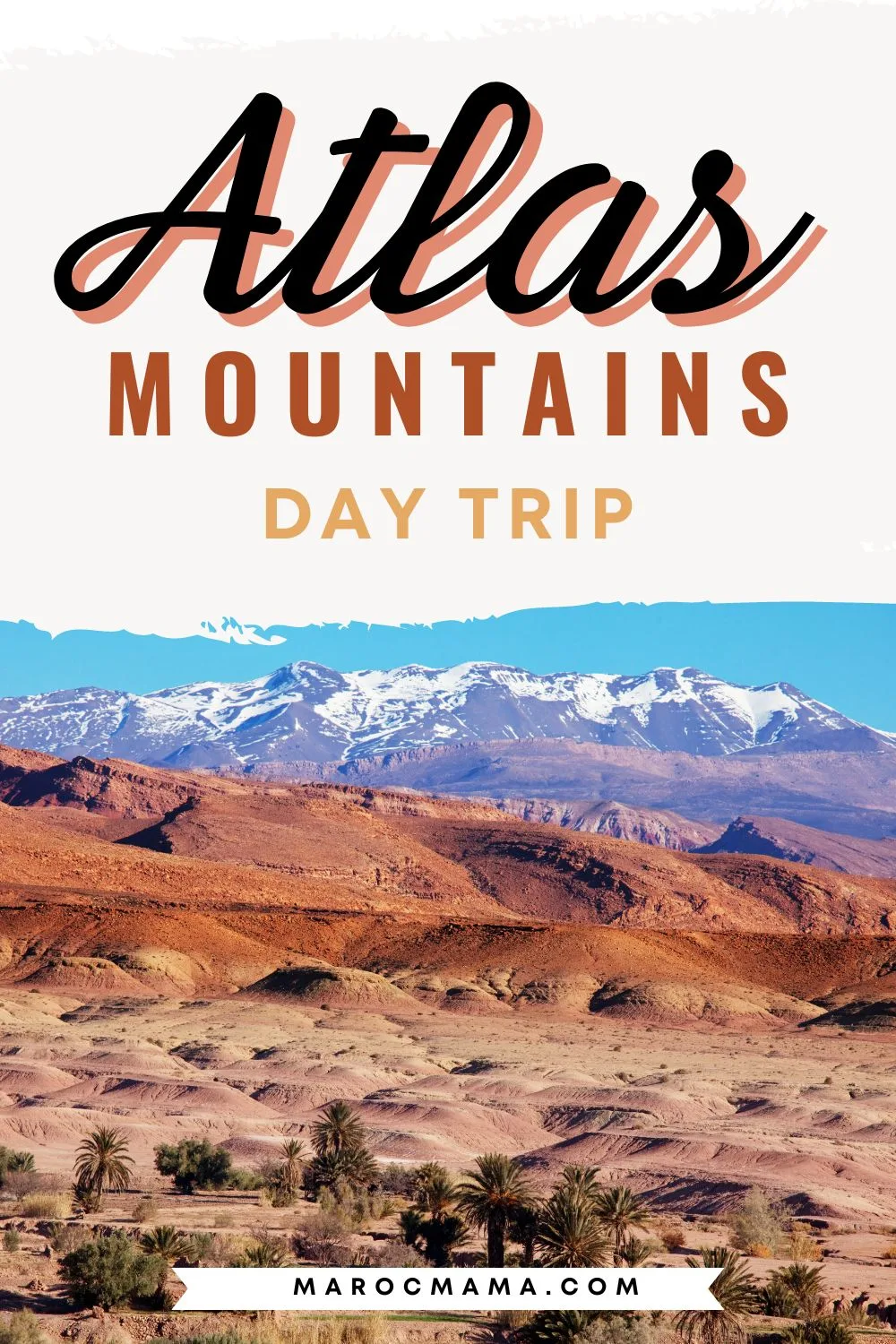
After having explored the Atlas Mountains countless times, I’ve put together this guide on how to visit them on a day trip. Read on to discover how to get to the Atlas Mountains and what activities are typically included in day-trip packages offered by tour operators.
Where Are the Atlas Mountains and How Do I Get There?
The Atlas Mountains run through Morocco, Algeria, and Tunisia, standing between the sandy Mediterranean shores and the sprawling Sahara Desert.
Due to their vast size, these mountains are broken into sub-ranges, such as the High Atlas Mountains, close to Marrakech. These rugged highlands are dotted with villages and towns home to indigenous Berber tribes, making up much of Morocco’s terrain.
How to Get to the Atlas Mountains
There are two ways to reach the Atlas Mountains: an organized tour or a shared taxi.
Day trips to the Atlas Mountains depart from the Marrakech city center, with most companies offering hotel pickup and return transport depending on the location. The places you’ll visit will vary based on the company you go with, but most include the main highlights like Imlil Valley and Moulay Brahim Gorges.
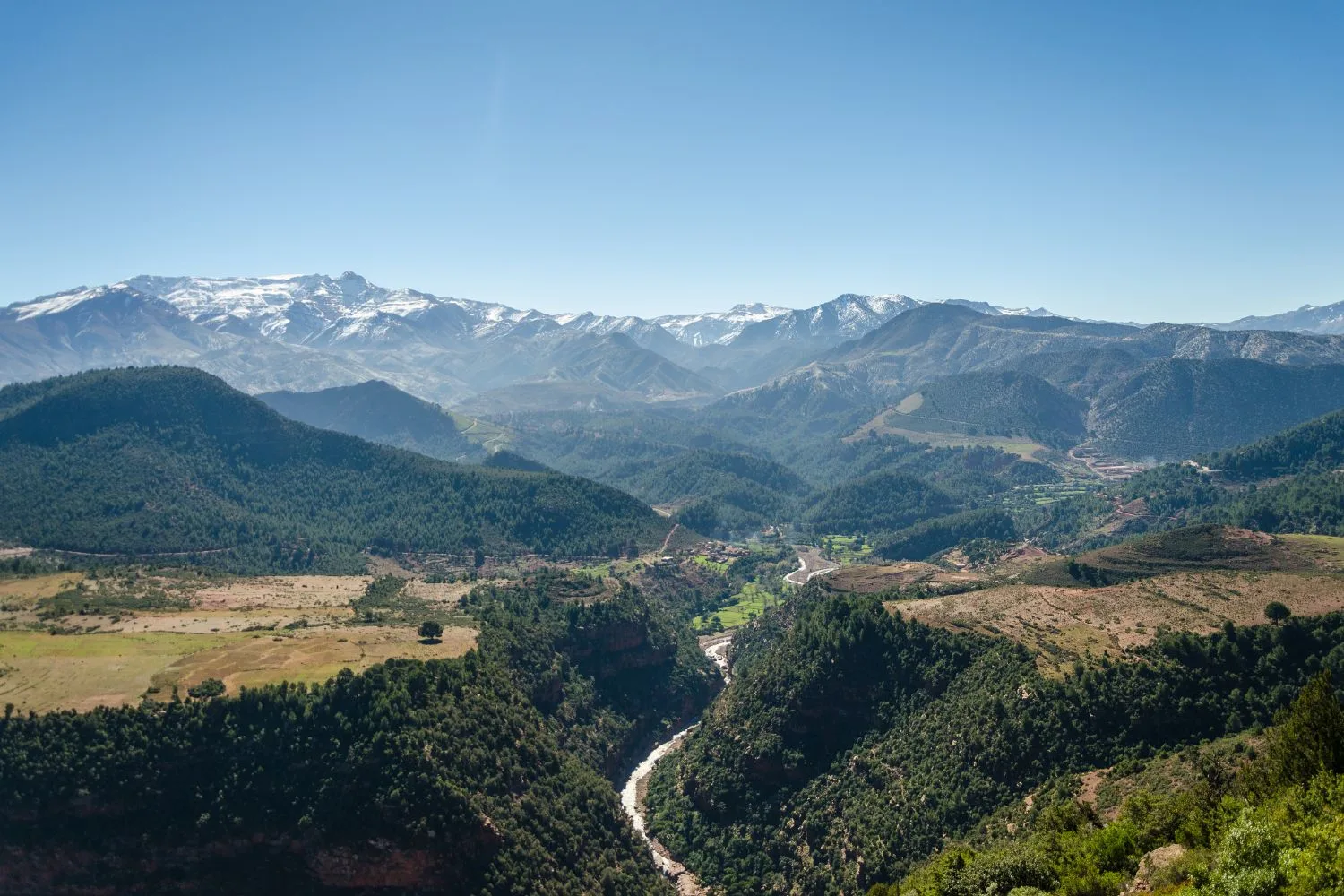
If you’d prefer to make your own way there, you can also jump in a shared taxi near Jemaa el-Fnaa. However, I highly recommend a guided tour, a stress-free and much more convenient option (unless you plan to spend a few nights in Imlil).
What’s Involved in An Atlas Mountains Day Trip?
The precise itinerary for a day trip to the Atlas Mountains varies between tour guides and groups, but most consist of trekking, scenery, and visits to local cooperatives.
Many tours pick you up at your accommodation, while others may depart from a common meeting point, which is generally close to Jemaa el-Fnaa. From here, you’ll journey across breathtaking mountainous landscapes, making several stops on the way to capture photos of the scenery.
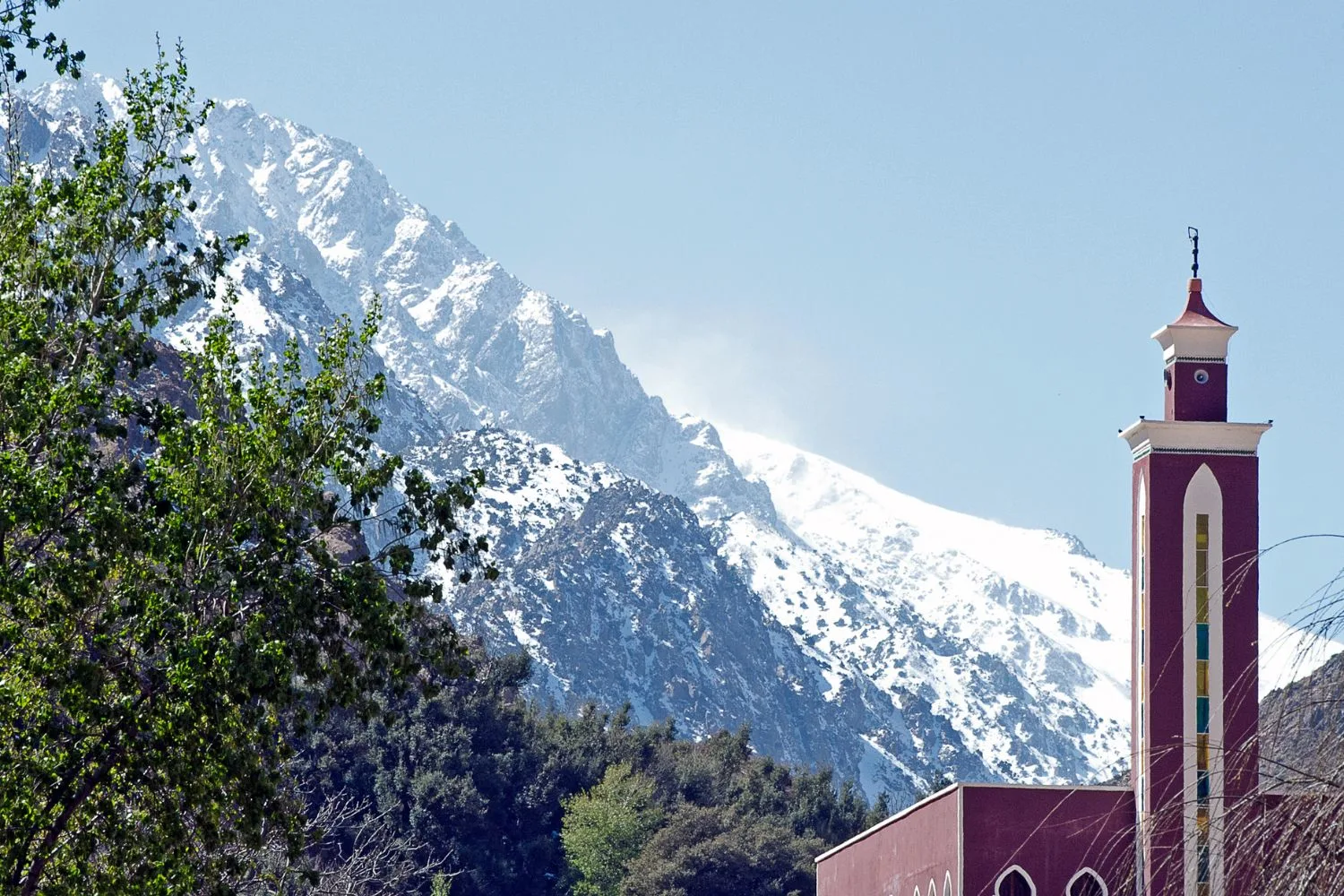
Often, you’ll first visit a small cooperative outside of Imlil. Something I like is that most tours stop at an argan oil production site. Operated exclusively by women, this site allows you to learn how locals use traditional methods and processes to create products like soaps and serums using argan oil. What I particularly appreciate is that these cooperatives provide a stable income for local women, so they are a great addition to guided tours.
Afterward, you’ll hit the road again and make your way toward Imlil, where you’ll get prepared to set off in search of waterfalls, quaint Berber villages, and deep valleys as part of your guided hike. The trek will usually take place over a few hours. During this time, there’ll be plenty of breaks along the way for you to soak up the epic views and get insights into the surrounding landscapes from your guide.
Having spent a few hours immersed in the soaring peaks of the Atlas Mountains, you’ll likely feel a little peckish. Lunch is included in most excursions at a local restaurant, and this usually comprises a few options, such as a nourishing tagine or a fresh Moroccan salad. With any luck, you might even get to sample a cup of tasty mint tea – an authentic taste of Morocco!

For a truly raw experience, I recommend booking this food culture tour through the Atlas Mountains, which includes breakfast and a tea ceremony with an Amazigh Family.
Best Things to See on an Atlas Mountains Day Trip
There are some highlights you can’t afford to miss on an Atlas Mountains day trip. Some of these include:
Imlil Valley – Known as the gateway to Morocco’s Atlas Mountains, the Imlil Valley is the main starting point for anyone planning to tackle Mount Toubkal. It’s a charming little settlement surrounded by gorgeous scenery, snow-capped peaks, and traditional Berber homes.
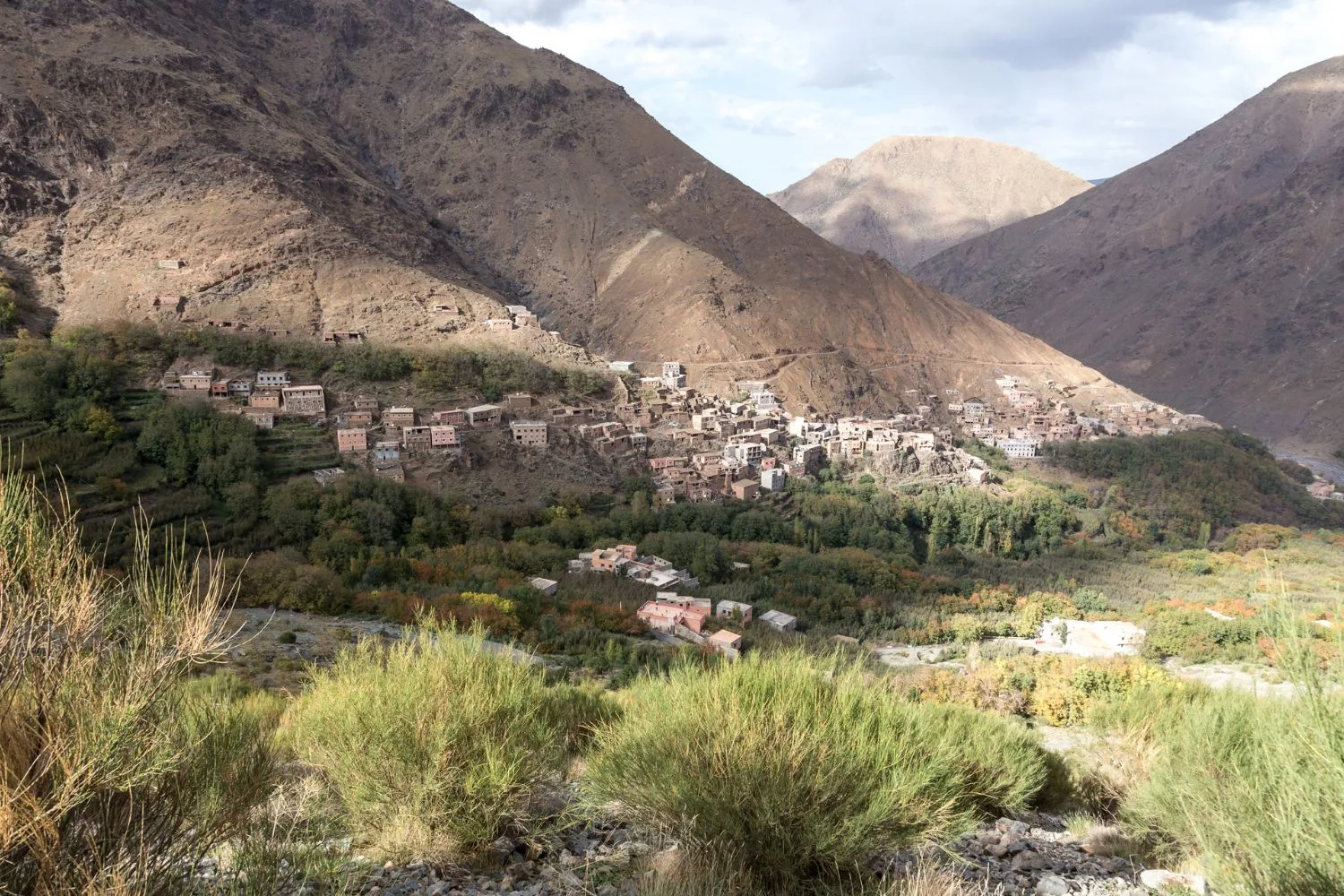
Ouzoud Waterfalls – The Ouzoud Waterfalls are a mesmerizing set of cascades that fall into the El-Abid River gorge. They’re famous for their unique look and being home to a family of macaque monkeys. Just be careful not to get too close to them, as they’re known for being aggressive.
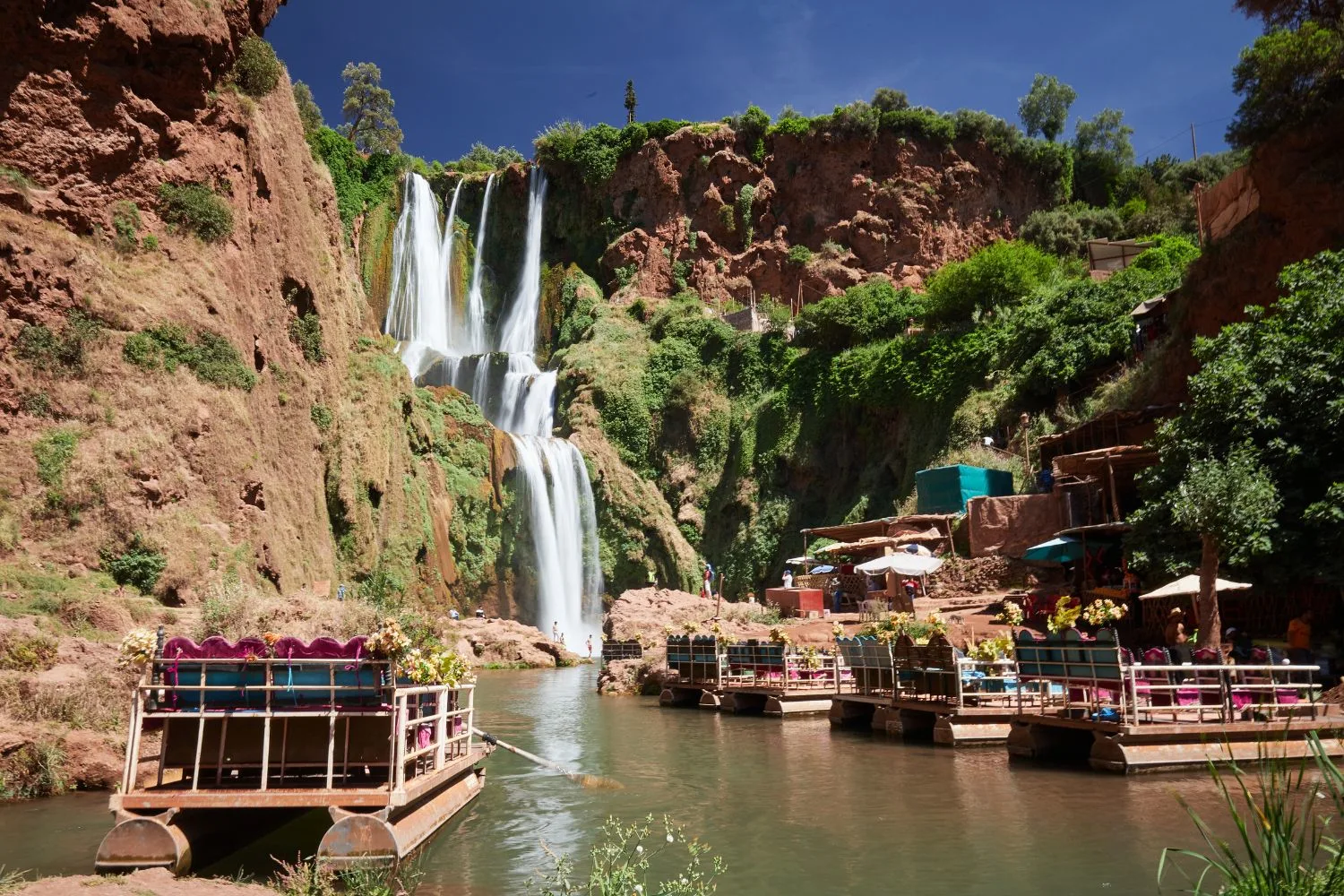
Moulay Brahim Gorge – Set close to the tiny town of Asni, the Moulay Brahim Gorge is a majestic valley with a tranquil stream running through it. The best things here are taking on incredible treks and enjoying tea with local Berber families.
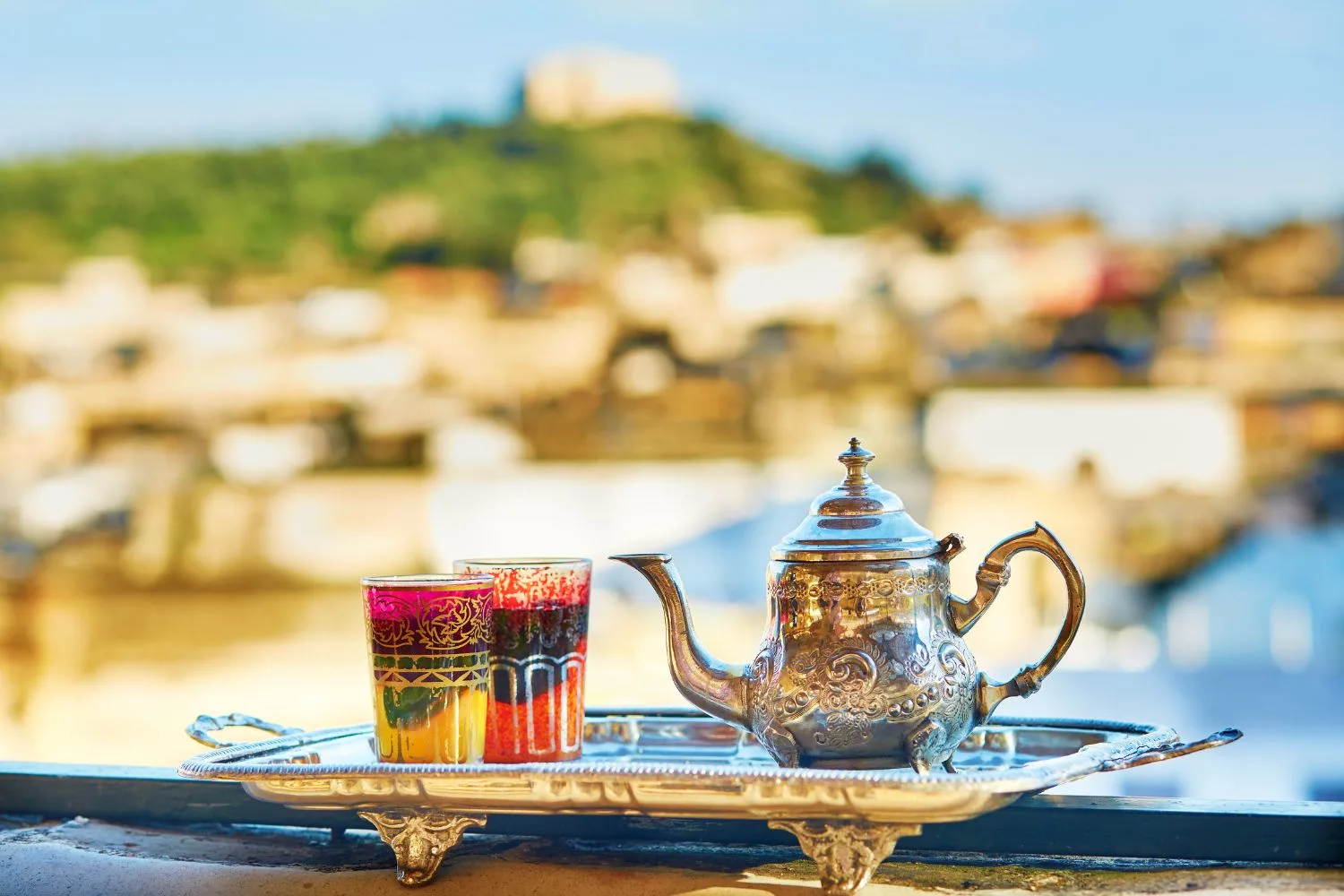
Aït Benhaddou – Aït Benhaddou is an ancient ksar (fortified village) that lies along the old caravan routes between Marrakech and the Sahara. It’s located in the heart of the Atlas Mountains and is famous for its high defensive walls and distinctive appearance. Many movies have been filmed there, including Lawrence of Arabia and the Gladiator.
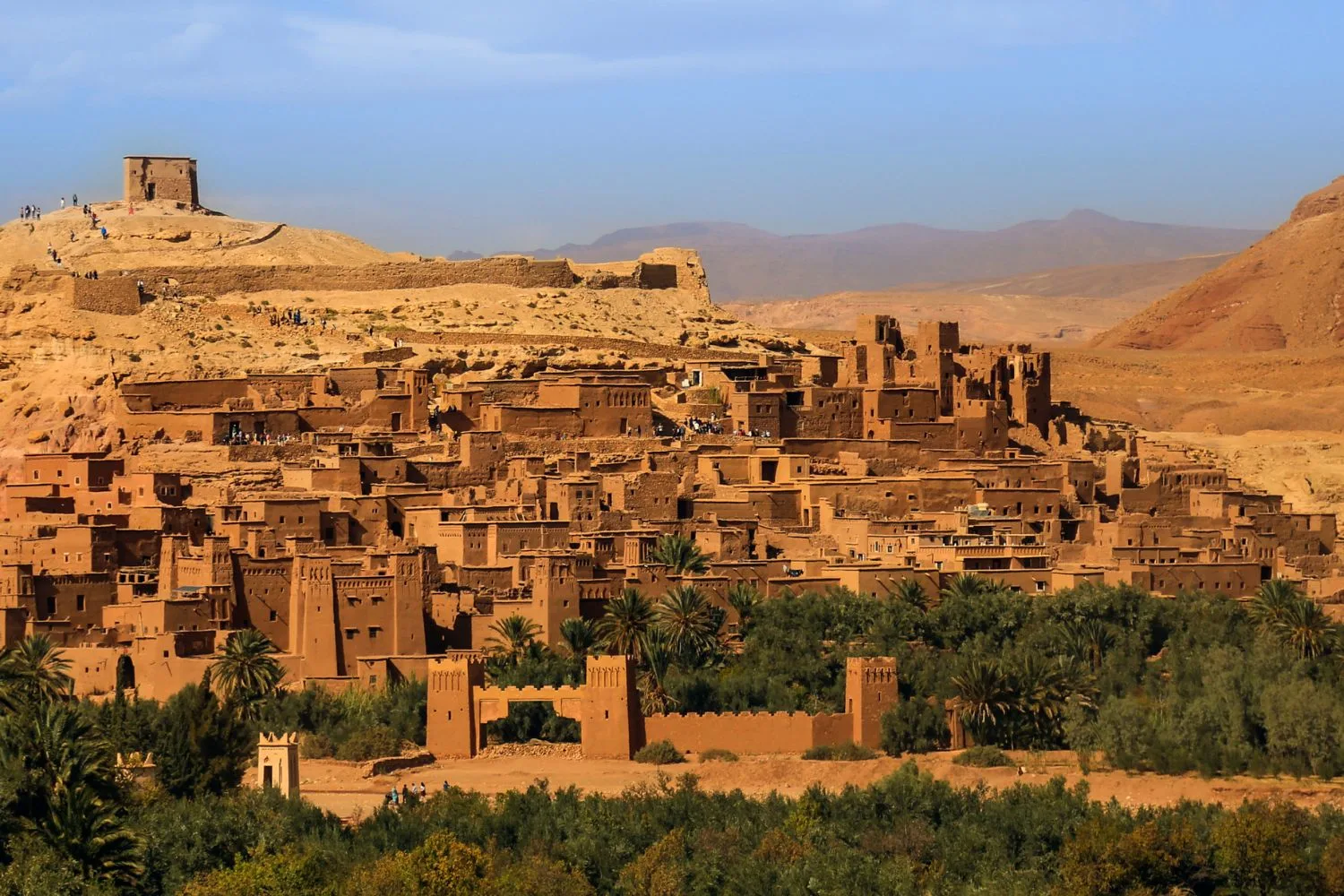
Tips for Your Atlas Mountains Day Trip
- You should have a basic level of fitness when taking a day trip to the Atlas Mountains, as many of the excursions involve walking uphill.
- Wear comfortable shoes.
- Take plenty of water with you to stay hydrated.
- Pack sunscreen and apply it regularly. You’ll be at a high elevation, so you’ll be at a higher risk of getting burnt.
- Bring plenty of local currency (Moroccan Dirhams) in case you want to buy any souvenirs and tip your guide.
One of the best experiences in Morocco is a hiking trip to the Atlas Mountains, where visiting remote villages, soaking up incredible landscapes, and summiting peaks, all while learning interesting facts from your mountain guide, will leave you with countless stories to tell.
Whether you are an amateur hiker or just a fit individual up for the challenge, you can check out our top tips on hiking in the Atlas Mountains, and what you can expect to see on your journey to reach the summit.
[ad_2]